
Speakers
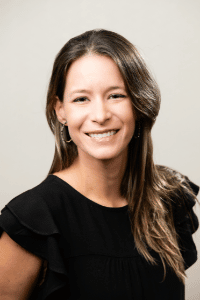
Ana Ballesteros serves as the marketing director for Latin America for the U.S. Grains Council, a non-profit organization that promotes the use of U.S. barley, corn, sorghum and related products in the international marketplace.
In this capacity, Ballesteros plans, coordinates, and implements the Council’s customer servicing, technical oriented feed grains related programs and activities in the region.
Ballesteros began working for the Council in late 2016. Prior to this, she had worked for nearly seven years in the feed industry in Colombia. This previous experience, where she was responsible for the company’s international purchases, buying nearly one hundred thousand metric tons of feed ingredients per-month, provided her with considerable knowledge of the ingredients and operations of the feed and livestock businesses in Latin America.
Ballesteros holds a bachelor’s degree of administrative engineering from Antioquia’s School of Engineers and a master’s degree in business administration from the Monterrey Technological Institute (Mexico). She also participated in an Advanced Management Program at the IE Business School in Madrid, Spain.
 Emily Byron serves as the director of global programs for the U.S. Grains Council, a non-profit organization that promotes the global use of U.S. barley, corn, sorghum and related products worldwide including ethanol and distiller’s dried grains with solubles (DDGS).
Emily Byron serves as the director of global programs for the U.S. Grains Council, a non-profit organization that promotes the global use of U.S. barley, corn, sorghum and related products worldwide including ethanol and distiller’s dried grains with solubles (DDGS).
In this capacity, Byron oversees strategic analysis of program planning and development as well as the implementation and evaluation of USGC programs.
Byron joined the Council as the global programs coordinator in 2015 before being promoted to manager of global programs in October, 2016. She rose to her current position in May, 2022.
Byron holds a bachelor’s degree from Gettysburg College in globalization studies with a double minor in philosophy and religious studies. She also holds a master’s degree from Kings College London in contemporary studies.
 In 1998, Antonia Broyaka graduated from Vinnytsia State Agricultural Institute (Vinnytsia, Ukraine) with a honors diploma on the specialty economist-organizer of agricultural production, and in 1999 received a master’s of agricultural management.
In 1998, Antonia Broyaka graduated from Vinnytsia State Agricultural Institute (Vinnytsia, Ukraine) with a honors diploma on the specialty economist-organizer of agricultural production, and in 1999 received a master’s of agricultural management.
In 2000, she graduated with a honors diploma from the International Institute of Management and Marketing in Agribusiness of Warsaw Agrarian University, Poland, and received the international degree of master’s of business administration in agri-food business.
From 2008 to 2011 she conducted a postgraduate study at the National Research Center Institute of Agrarian Economics of the National Academy of Agrarian Sciences of Ukraine (Kyiv, Ukraine) and received a scientific degree Candidate of Economic Sciences in economics and management of the national economy (equivalent to PhD in economics). In 2018, she was awarded by the Ministry of Education and Science of Ukraine the academic title associate professor of economics.
From September 1998 to March 2022, Broyaka carried out scientific and educational activities at the Vinnytsia National Agrarian University, Ukraine, in positions including teaching assistant, senior lecturer, associate professor and vice-dean for research and dean of the faculty of economics and entrepreneurship.
She is an author (individually and co-authored) of more than 60 publications of educational and methodological nature, as well as nearly 70 scientific publications. In her research, she paid considerable attention to nowadays micro- and macroeconomic problems, strategic management of the national economy, principles of development of agro-industrial sector of economy, agricultural extension service, food security and current trends in foreign economic activity.
She pays considerable attention to international cooperation and experience exchange. In 2018, she passed an internship in economics at the University “Professor Doctor Asen Zlatarov” Burgas, Bulgaria. During the 2004-2005 academic year, she was a participate of the Fulbright / Junior Faculty Development Program at Kansas State University. From 2002 to 2004, Broyaka worked as a bilingual administrative secretary and consultant of economics issues and agricultural extension at the Vinnytsia Oblast Center for Private Farmer Training and Outreach established within a USAID international technical assistance project between Vinnytsia National Agrarian University and Louisiana State University. In 2001, she had successfully completed the faculty exchange program at the USDA and Pennsylvania State University. She regularly participates in international conferences domestically and abroad.
Following the Russian invasion of Ukraine, Broyaka has moved to the United States and received refuge in Manhattan, Kansas. She is continuing research activity as an extension associate of the agricultural economics department of Kansas State University on an issue of economic impact of Russian military aggression on Ukrainian agriculture and glob food security.
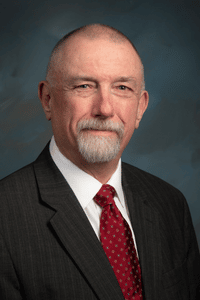 The National Corn Growers Association (NCGA) Corn Board named Jon Doggett as the organization’s chief executive officer in September 2018. Doggett is the fifth CEO in the organization’s 61-year history.
The National Corn Growers Association (NCGA) Corn Board named Jon Doggett as the organization’s chief executive officer in September 2018. Doggett is the fifth CEO in the organization’s 61-year history.
Doggett served as NCGA executive vice president since late 2014. Prior to that, he served as vice president of public policy, In that position, he managed the organization’s 11-person Washington, DC office and led its public policy efforts since joining NCGA in July of 2002.
Raised on his family’s Montana ranch, Doggett has substantial knowledge of production agriculture and agribusiness, as well as more than 30 years of agricultural policy and leadership experience, after moving to Washington in the late 1980s.
Before joining NCGA, Doggett served 11 years at the American Farm Bureau Federation, where he was the Bureau’s lead lobbyist on a number of public policy issues, including ethanol, climate change, land use, conservation, and endangered species.
While in Washington, Doggett also worked for the National Cattlemen’s Beef Association/Public Lands Council and served on Capitol Hill as senior legislative assistant for Montana Congressman Ron Marlenee.
His ability to look at issues with a fresh perspective and find a common ground has been the cornerstone of Doggett’s work in the legislative arena. In 2004, he was named one of the most influential lobbyists in Washington by The Hill newspaper. In 2014, Doggett served as President of the Washington Agri-Business Club. He served on the board of directors of the National Institute of Lobbying and Ethics
In addition to his public policy experience, Doggett was a stockbroker for Dean Ritter Reynolds and a district manager for Allis Chalmers Corp. He attended the University of Montana, where he majored in finance and journalism.
Doggett enjoys returning to his family’s ranch in Meagher County, Montana. He is an enthusiastic kayaker and is has earned a Sea Kayak Instructor certificate. He currently is a student pursuing a Class A Skydive License. Jon resides in Northern Virginia with his wife, Nancy. They have two adult children, Katie and Andrew, and the two most wonderful granddaughters in the whole world.
Founded in 1957, the National Corn Growers Association represents more than 40,000 dues-paying corn growers and the interests of more than 300,000 farmers who contribute through corn checkoff programs in their states. NCGA and its 48 affiliated state associations and checkoff organizations work together to help protect and advance corn growers’ interests.
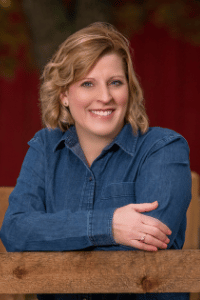 Angela Marshall Hofmann, Esq., is Vice President, International Trade and Supply Chain Resiliency, and a member of the firm based in the Washington, D.C., office. A trusted advisor to government officials, CEOs, and senior executives for more than two decades, she advises and represents clients on global trade and supply chain transparency issues before global policy makers and regulators. She assists organizations in developing resiliency plans to ensure greater visibility into and accountability over complex supply chains. She also works with clients to find solutions to the ever-increasing complexities impacting companies’ bottom lines.
Angela Marshall Hofmann, Esq., is Vice President, International Trade and Supply Chain Resiliency, and a member of the firm based in the Washington, D.C., office. A trusted advisor to government officials, CEOs, and senior executives for more than two decades, she advises and represents clients on global trade and supply chain transparency issues before global policy makers and regulators. She assists organizations in developing resiliency plans to ensure greater visibility into and accountability over complex supply chains. She also works with clients to find solutions to the ever-increasing complexities impacting companies’ bottom lines.
Most recently, Marshall Hofmann led Eurasia Group’s Industrial and Consumer Corporate Practice, specializing in geopolitical risk impacting global manufacturing, logistics, retail, and consumer goods multinational organizations in North America, Europe, Asia, and Latin America.
Marshall Hofmann also has extensive corporate experience, spending nearly 15 years as an officer with Walmart Stores in a variety of roles including vice president for international government affairs, where she led the company’s external engagement in more than 40 retail, ecommerce, and sourcing countries. Throughout her career she has also launched innovative projects for public-private supply chain capacity building focused on transparency, safety, and agricultural development. Previously, she founded World Strategies, a woman-owned government affairs and policy consulting firm providing strategic, innovative solutions to accelerate global investment, manage risk, enhance reputation, and drive cost savings. She is also co-founder of Farmers for Free Trade and a member of the board of advisors for World Trade Centers in both Montana and Arkansas.
Marshall Hofmann began her career in the Senate, where she served as a congressional liaison for Sen. Max Baucus and later as trade and agriculture legislative counsel and then international trade counsel for the Senate Finance Committee. From 2010 to 2013 she served as president of the Organization of Women in International Trade, leading 25 chapters and more than 2,000 members around the globe. She currently serves as their co-vice president of partnerships.
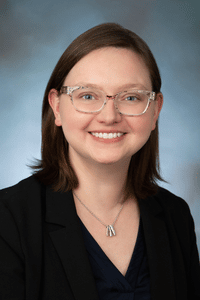 Melissa George Kessler serves as the director of strategic initiatives and engagement for the U.S. Grains Council, a non-profit organization that promotes the global use of U.S. barley, corn, sorghum and related products including ethanol and distiller’s dried grains with solubles (DDGS).
Melissa George Kessler serves as the director of strategic initiatives and engagement for the U.S. Grains Council, a non-profit organization that promotes the global use of U.S. barley, corn, sorghum and related products including ethanol and distiller’s dried grains with solubles (DDGS).
In this capacity, she works to support the executive team and the organization as a whole to develop, implement and evaluate strategy and processes to achieve Council goals.
Kessler previously worked as director of strategic relations and director of communications with the Council, responsible for strengthening relationships with domestic and international partners through communication and awareness of Council programs.
Prior to joining the Council, Kessler ran a consulting practice focused on strategic communications and organizational effectiveness. Kessler also worked as the director of communications at the National Association of Wheat Growers and as a reporter and editor.
Kessler holds a master’s degree in organization development from American University and a bachelor’s degree in political science from the University of Oklahoma.
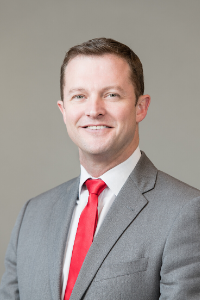 Ryan LeGrand serves as the president and CEO for the U.S. Grains Council (USGC), a non-profit organization that promotes the use of U.S. barley, corn, sorghum and related products worldwide.
Ryan LeGrand serves as the president and CEO for the U.S. Grains Council (USGC), a non-profit organization that promotes the use of U.S. barley, corn, sorghum and related products worldwide.
LeGrand joined the Council in 2015 as the assistant director and then director of the Council’s Mexico office where he identified and addressed all relevant trade, technical and policy-related factors relevant to building and maintaining the market for U.S. grains and co-products in Mexico. Before joining the Council, LeGrand worked for Gavilon as the director of ingredients, located in Guadalajara, Mexico. In this capacity, he managed the company’s feed ingredients trading, import and distribution throughout Mexico. LeGrand also served as the director of exports for Hawkeye Gold, LLC where he exported DDGS to Latin America and Asia.
LeGrand earned a bachelor’s degree from Oklahoma State University in international business.
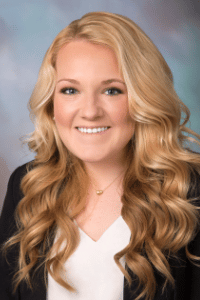 Sadie Marks serves as the manager of global programs for the U.S. Grains Council, a non-profit organization that promotes the global use of U.S. barley, corn, sorghum and related products including ethanol and distiller’s dried grains with solubles (DDGS).
Sadie Marks serves as the manager of global programs for the U.S. Grains Council, a non-profit organization that promotes the global use of U.S. barley, corn, sorghum and related products including ethanol and distiller’s dried grains with solubles (DDGS).
In this capacity, Marks assists with the strategic analysis of program planning and development, the implementation and evaluation of USGC’s global programs and backstopping the execution of the Council’s programs with its international offices.
Marks previously served as the Council’s global programs coordinator, in which she provided administrative support to the global programs team as well as the Council’s overseas offices – handling details, logistics and follow-up needs associated with USGC programs and consultants.
Prior to joining the Council, Marks worked in the dean’s office of the College of Agricultural, Consumer and Environmental Sciences at the University of Illinois while she earned her bachelor’s degree in agricultural and consumer economics with a minor in international development.
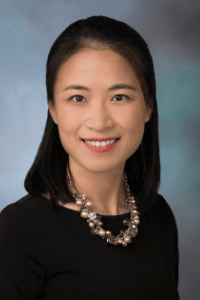 Sunxing “Stella” Qian serves as the manager of global ethanol market development for the U.S. Grains Council, a non-profit organization that promotes the global use of U.S. barley, corn and sorghum and related products including ethanol and distiller’s dried grains with solubles (DDGS).
Sunxing “Stella” Qian serves as the manager of global ethanol market development for the U.S. Grains Council, a non-profit organization that promotes the global use of U.S. barley, corn and sorghum and related products including ethanol and distiller’s dried grains with solubles (DDGS).In this capacity, Qian helps scale up global ethanol resources, implements programs and develops strategy for ethanol market development efforts.
Qian previously served as the manager of trade teams for the Council, where she coordinated planning and travel logistics for teams visiting the United States on trade missions and managed budgets.
Originally from Hangzhou, China, she is a graduate of George Washington University she also holds a master’s degree in tourism administration with a concentration in event and meeting planning.
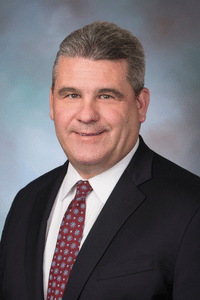
Cary Sifferath serves as the vice president for the U.S. Grains Council, a non-profit organization that promotes the global use of U.S. barley, corn, sorghum and related products including ethanol and distiller’s dried grains with solubles (DDGS).
In this capacity, Sifferath is responsible for oversight of the Council’s 10 international offices and all worldwide programs.
Sifferath has held various positions within the Council since joining in 1993. From 1993 to 1995, Sifferath was the manager of international operations/Asia at the Council’s Washington, D.C., office. He was responsible for managing all programs within the Asia region.
He was promoted in 1995 to assistant director for the Southeast Asia office, based in Kuala Lumpur, Malaysia, and in 1997 was promoted again to regional director for Southeast Asia. In that capacity, he was responsible for market development activities throughout the Southeast Asia region.
From 2001 to 2008, Sifferath served as the senior director in the Council’s Tokyo, Japan office and carried out market development and trade activities in Japan.
From 2008 to 2010 he was the senior director in the Council’s Beijing, China office. During this time, he managed the Council’s market development programs and office operations in China.
From 2010 to 2015 he served as the regional director of Middle East, Africa and Europe in the Council’s regional office in Tunis, Tunisia.
From 2015 to 2022, Sifferath was the senior director of global programs at the Council’s headquarters in Washington.
Before joining the Council in 1993, Sifferath was a district sales manager for Kent Feeds, Inc., of Muscatine, Iowa.
During the last 28 years, Sifferath has lived and traveled extensively in and outside of the U.S. collecting information and firsthand knowledge of world grain supply and demand from regular contacts with local feed grain importers, processors, end-users and various agricultural agencies.
Sifferath earned his bachelor’s degree at the University of Wisconsin, River Falls, in agricultural economics and animal science.
 Yuval Weber, PhD, is a Subject-Matter Expert on Russian Military and Political Strategy at the Brute Krulak Center for Innovation and Future Warfare at Marine Corps University in Quantico, VA. He also serves Research Assistant Professor at Texas A&M’s Bush School of Government and Public Service in Washington, DC. Dr. Weber has also taught or researched at the Kennan Institute at the Woodrow Wilson Center, Harvard University, and the Higher School of Economics in Moscow, Russia. He is currently working on two projects, one sponsored by the Minerva Research Initiative at the Department of Defense that develops a tool to measure great power influence in international affairs to chart the course and conduct of great power competition, and a second that examines the tension between demands of economic modernization and the security state in Russian political economy. The latter manuscript is scheduled for publication in 2022 by Agenda Publishing and Columbia University Press.
Yuval Weber, PhD, is a Subject-Matter Expert on Russian Military and Political Strategy at the Brute Krulak Center for Innovation and Future Warfare at Marine Corps University in Quantico, VA. He also serves Research Assistant Professor at Texas A&M’s Bush School of Government and Public Service in Washington, DC. Dr. Weber has also taught or researched at the Kennan Institute at the Woodrow Wilson Center, Harvard University, and the Higher School of Economics in Moscow, Russia. He is currently working on two projects, one sponsored by the Minerva Research Initiative at the Department of Defense that develops a tool to measure great power influence in international affairs to chart the course and conduct of great power competition, and a second that examines the tension between demands of economic modernization and the security state in Russian political economy. The latter manuscript is scheduled for publication in 2022 by Agenda Publishing and Columbia University Press.
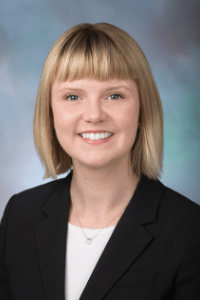
Katy Wyatt serves as the manager of global strategies for the U.S. Grains Council, a non-profit organization that promotes the global use of U.S. barley, corn, sorghum and related products including ethanol and distiller’s dried grains with solubles (DDGS).
In this capacity, Wyatt manages the Council’s Food for Progress program in Tanzania, assists with coordination and submission of the organization’s Unified Export Strategy and works on other programs that fall under the global strategies portfolio.
Prior to the Council, Wyatt worked for at the Mastercard Foundation in Toronto, Canada, as an intern for the Foundation’s Youth Livelihoods Program. There, she provided technical, administrative and logistical support to the Youth Livelihoods team. Wyatt also served as a business development officer in Addis Ababa, Ethiopia, for the Mennonite Economic Development Associates (MEDA), a Canadian non-governmental organization focused on creating business solutions to poverty. At MEDA, Wyatt supported her team to integrate smallholder rice farmers and textile artisans into higher value markets through increasing market linkages and enhanced productivity.
Wyatt holds a bachelor’s degree in economics and international development and a master’s degree in development economics, both from Dalhousie University, Nova Scotia, Canada.
